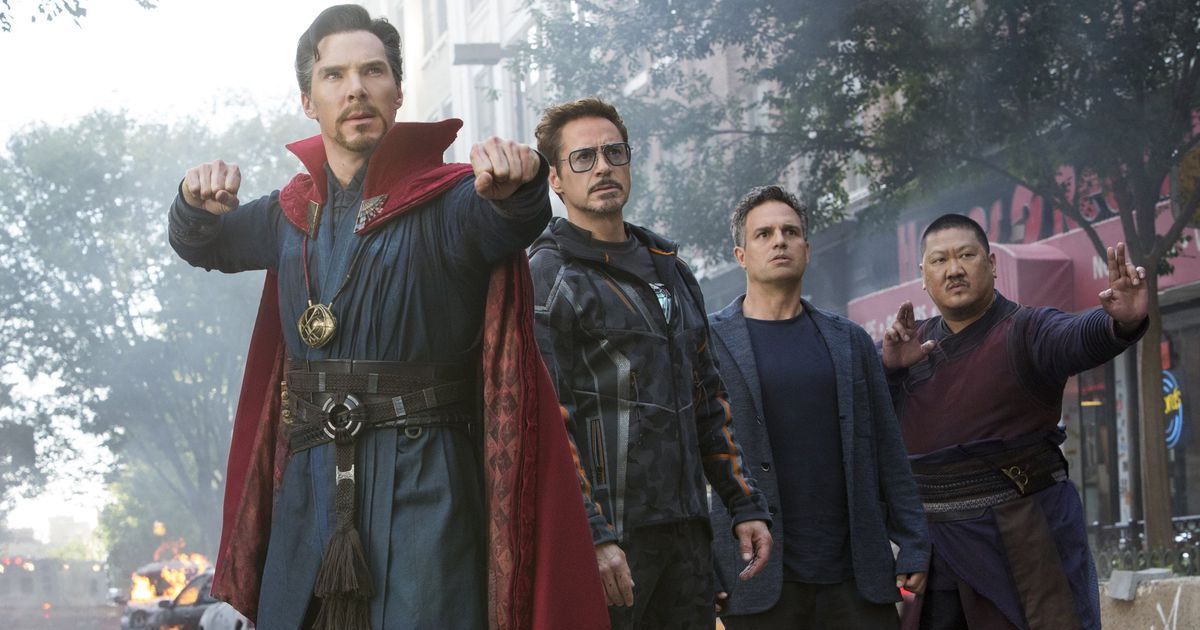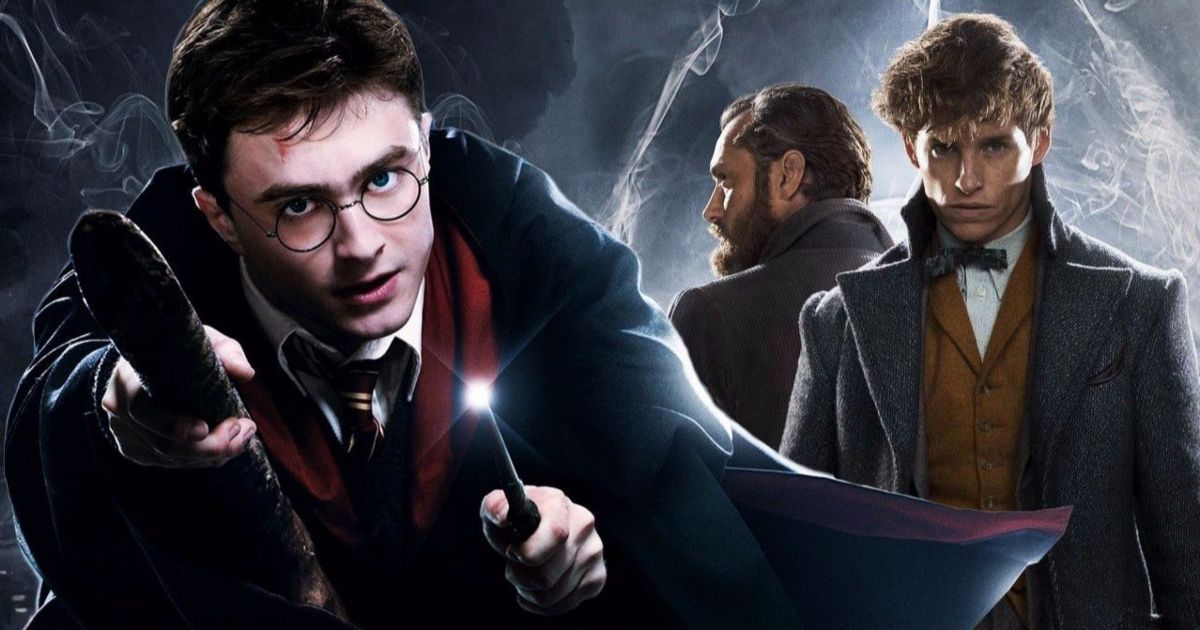Two decades ago, we didn't have iPhones or Android phones. We didn't have streaming television services. Netflix was around, but it was in its nascent stages as a DVD service, its movies contained in those iconic bright red envelopes via USPS. Broadband internet had just hit the market, replacing dial-up. The top movies at the box office were Spider-Man, Star Wars Episode II: Attack of the Clones, Harry Potter and the Chamber of Secrets, Signs, My Big Fat Greek Wedding, and Austin Powers in Goldmember.
In 2022, we stream most of our content. We have smartphones, DVRs come with our cable or satellite contacts, and Netflix is a major content creator in Hollywood. The internet is ubiquitous. The top movies of the past year were Spider Man: No Way Home, Shang Chi and the Legend of the Ten Rings, Venom: Let there be Carnage, Black Widow, F9, and Eternals. Six of the top seven films of 2021 were part of the Marvel Cinematic Universe, and the top nine films were in franchises.
There have always been big film franchises, but there seems to be an oversaturated bloat of them today in Hollywood. Studios have moved away from delightful stand-alone films and fully embraced Cinematic Universes and franchises both at multiplexes and on streaming services. You seemingly can't scroll through channels without encountering MCU, Star Wars, Harry Potter, or DC programming. You can't drive past multiplexes without seeing giant billboards for the latest offerings from a franchise. There's no doubt that these films and programs are wildly popular with a lot of people, but there are a lot of wonderful, valuable, important stories no longer being told in Hollywood, or being edged out by 'the sure thing' of franchises, so that they can churn out more derivative content.
Why? How did this happen? It seems to be a good thing to the legions of fans, but is it for film itself? Let's take a look.
The DVD Market Evaporated
The answer to the question of "Why have individual movies died out in favor of franchises and cinematic universes" is a fairly simple one at its core. Movies cost a ridiculous amount of money to make these days in Hollywood. In the pre-streaming days, studios made the bulk of their profits off home media like VHS and later DVD rentals and sales. That market had deep pockets and the film industry milked them with special edition directors' cuts and other exclusive behind-the-scenes content that allowed them to repackage a film the public had seen with new content. In 2004, the New York Times reported that the DVD release of Miramax's Kill Bill: Vol. 1 made $40 million on its first day of release.
In 2005, the Los Angeles Times wrote about this phenomenon, saying, "DVDs have provided the fastest-growing segment of show business returns, with 2004 domestic DVD sales reaching $15.5 billion and DVD rentals grossing $5.7 billion, according to the Digital Entertainment Group. Videocassette sales and rentals brought in $3.2 billion, while domestic theater ticket sales totaled $9.5 billion last year. The DVD windfall has taken on even greater importance now that overseas movie earnings are slowing." What made the DVD revenue so incredibly sweet for studios was that they didn't have to share much of it with anyone else, generally retaining 80% of net sales profits, according to the aforementioned L.A. Times article.
When streaming became the leading way we consume entertainment, that DVD revenue stream trickled off until it became nothing and studios had to scramble and find another way to pad their profits. Which leads us to the situation we are in now.
The Loss of DVD Profits Pushed Studios Towards Films With Global Appeal
The loss of DVD revenue in the film industry (with sales dropping roughly 90% since 2008, coincidentally the year the MCU began, according to CNBC) led directly to the drastic change in strategy we've seen play out. Basically, the studios started making more films that have global appeal and less specific film like 2006's Little Miss Sunshine. Spider-Man and the MCU have an appeal that is as big in Topeka, Kansas as it is in Osaka, Japan. Studios literally get more bang for their buck with this one-size-fits-all model of filmmaking, and even modify their scripts in conjunction with foreign governments and censors in order to appeal to global markets, as Marvel and Disney did with China. Spider-Man and Fast and Furious and Thor are global sensations as a result.
Streaming Services Cut Studio Revenue and Changed the Competition
Nothing has stayed stable for long over the past 15 years in the film industry. Studios lost the DVD sales revenue and found a way to recoup it. Then Netflix got into producing its own content, and Disney+, AppleTV+, Paramount+, and so on all got into the game. There are more people making more content today than ever, but they are telling the same stories. Still, studios had the Academy Awards and that prestige on their side; the Oscars had a long-standing rule that in order for a film to be eligible it needed to be shown in theaters before the end of the previous year. All of that changed in 2021, and the Academy of Motion Picture Arts and Sciences ruled that films which debuted on streaming services would be eligible for the Academy Award.
Studios got nervous, but surely one of these young upstart streaming services couldn't crack the code of the Academy Awards? The Oscars had history and weight and importance. Considering the proliferation of franchise films and cinematic universe films, studios should have been quaking in their boots. Then, in 2022, it happened. CODA was named Best Picture.
It was produced by and debuted on AppleTV+, and also took home the Oscar for Best Supporting Actor and Best Adapted Screenplay as well. And yet, what were we still getting in theaters from major Hollywood studios? Franchises and cinematic universes. The CODA win won't change much though; streaming-only debuts have been banned for Oscar eligibility again, so the studios have laissez-faire control and no competition once more.
Studios Have Grown Risk-Averse
Ask any true film buff (someone who is not just a Marvel fanboy, to be clear) how they feel about the state of the film industry in 2022, and you're likely to get some version of the statement that creativity is dead, all studios care about is the bottom line, and no one sees any way out of it if none of the studios will take a chance on an innovative project. While this all sounds trite and banal, the truth is that studios have become incredibly risk-averse and prefer to churn out franchise films that all use the same characters in the same storytelling framework. They can predict how these films will do. The suits at the studios have lost their vision and creativity; they are playing it safe, and it comes at a high cost to filmmaking. The film industry equates money and profits with continued, guaranteed audiences.
Top Gun: Maverick is breaking the bank in box office numbers right now, though. Yes, it's part of a limited franchise, but it's a sequel existing more than 35 years after the original, so it's not exactly what could be called 'franchise filmmaking.' This film marks a throwback to a style of storytelling and filmmaking that has been all but dead for 15 years — the individual, non-franchise, mainstream Hollywood blockbuster. Studios should take note, because audiences are loving it. Change the script, literally.
Social Media Influences
The rise of social media isn't doing the Hollywood studio system any favors either. Executives rely on algorithms about the kind of traction movie news and trailers are getting to make decisions. While it's a big part of marketing strategies, the element of surprise goes away when studios rely too much on what social media reveals to them. Fans ruin the franchises they love by constantly shaping their productions with feedback, criticism, and opinions, and that's because these franchises depend upon intellectual property the fans know and are protective of. With original, individual movies that aren't based on or continuations of these characters, studios don't have to crowdsource creativity and worry about what rabid, apoplectic fans they might piss off and instead make a movie that truly is different, creative, and surprising. CODA did that, and it took home three Oscars in 2022.
Hollywood has always relied upon innovation to progress the art of cinema. The first films were silent and in black and white. Then talkies came, and color film came, and special effects emerged from its schlocky beginnings to become truly wondrous. Digital evolved from film, cameras got lighter, television and home media changed distribution, and now social media is changing the audience's relationship to cinema, but these technological advances happen all the time. The film industry appears to feel like they can't control the message on social media, and so they either cower and acquiesce to demands (negotiating with terrorists, or 'the fanbase') or they run scared. They should be just making the best, most innovative, diverse films they can. Paradoxically, that is how they can have more control over the social media messaging — making the best art they can.
The Effect of the COVID-19 Pandemic on Film
The COVID-19 pandemic and its lockdowns affected every single one of us. For months on end we were confined to our homes, and Netflix and other streaming services became essential to keeping our sanity. A voracious appetite for new content was collectively unleashed in people — we needed more content and new content faster. After all, there was literally nothing else to do. That beast has been running rampant for two and a half years, and It's unlikely to be reigned in.
Audiences are used to having fresh, new shows and movies to watch 24/7. We've become a machine the studios are scrambling to feed; artistry and filmmaking, like the rest of capitalism, has to keep producing more and more, with line graphs perpetually up and to the right. That's going to resonate in the way films are made for many years to come. If audiences don't want an era of McFilms and bland movies of mass consumptions, maybe they should stop demanding such a high supply and savor what's excellent, when or if it comes.


.jpg)




